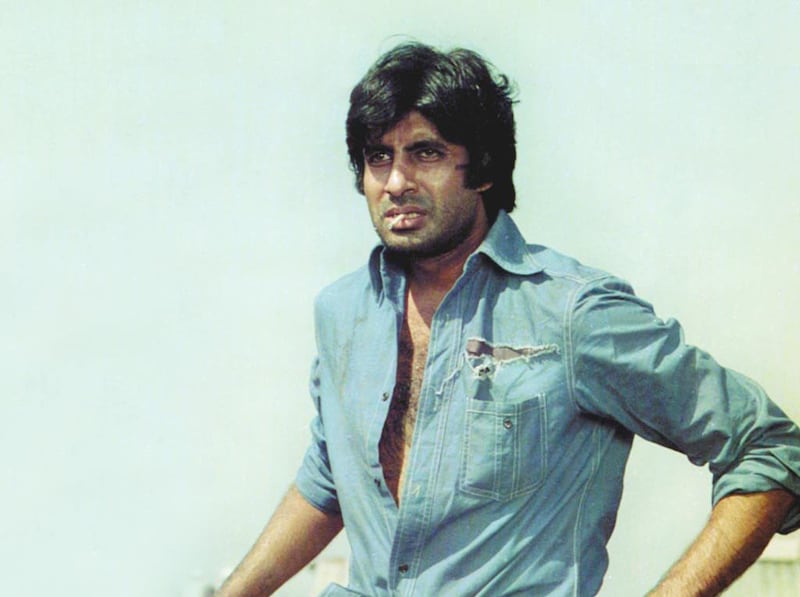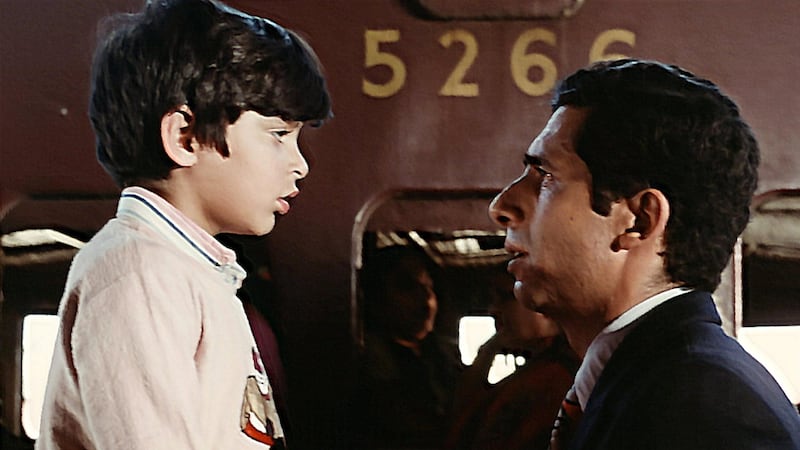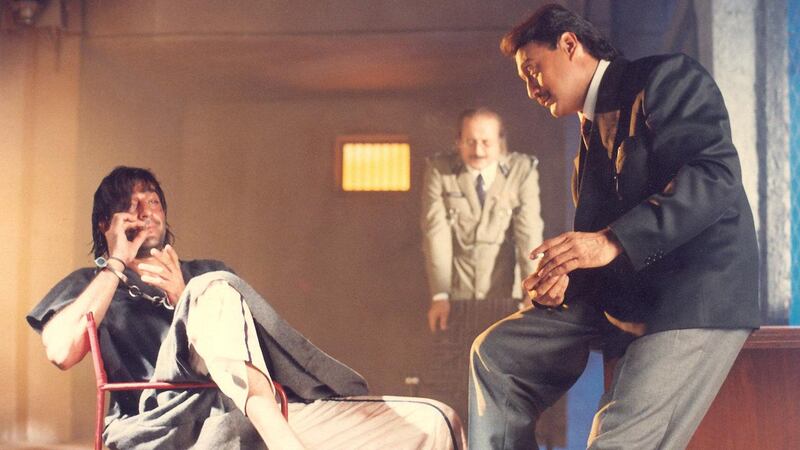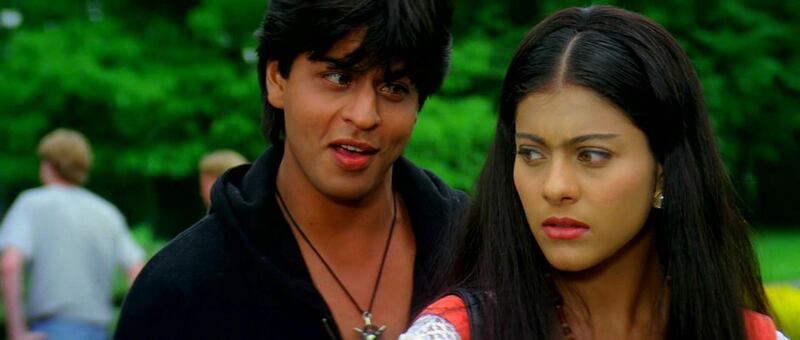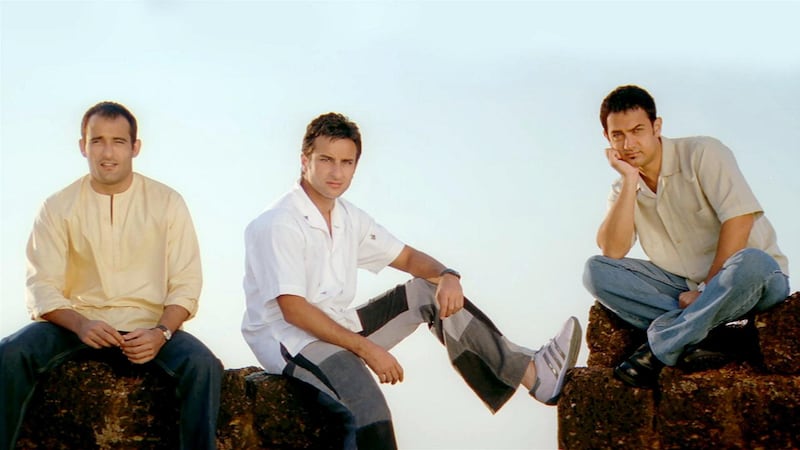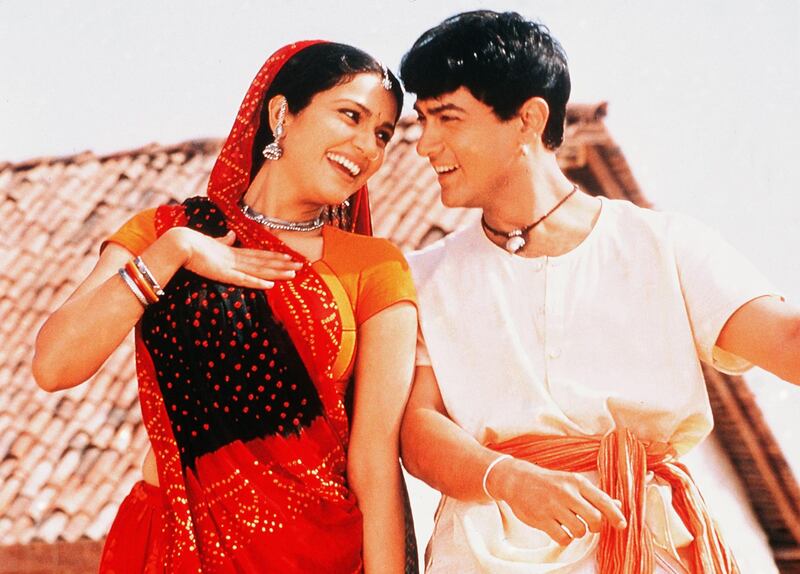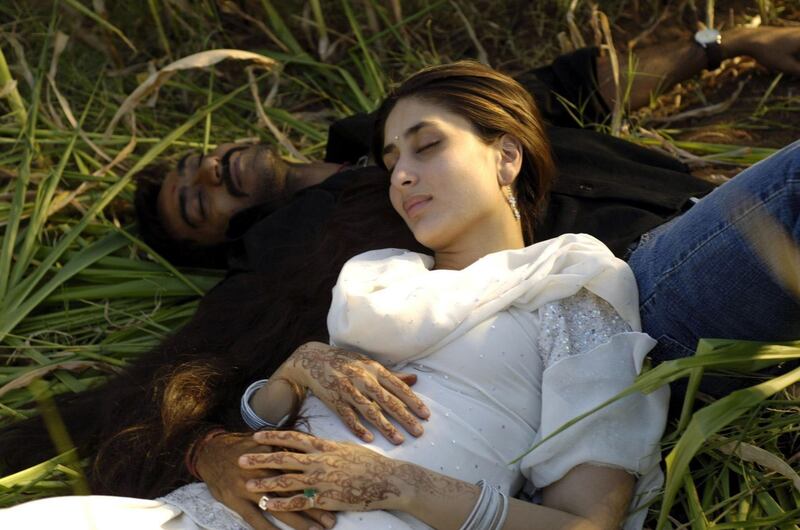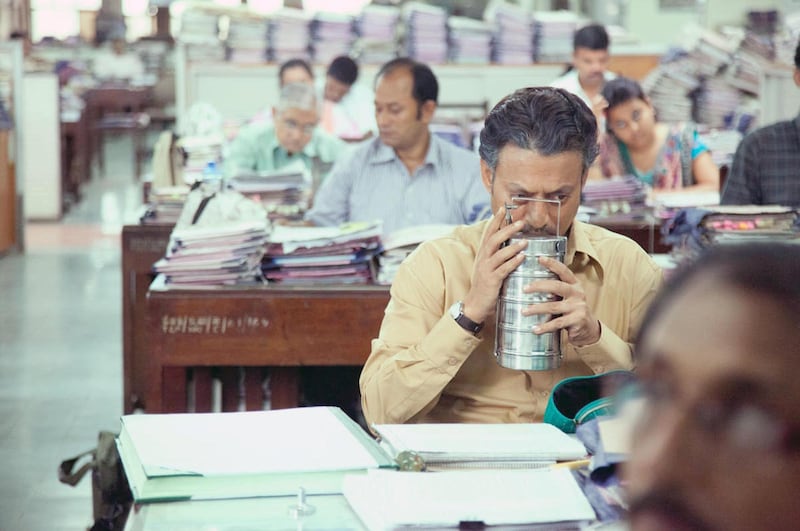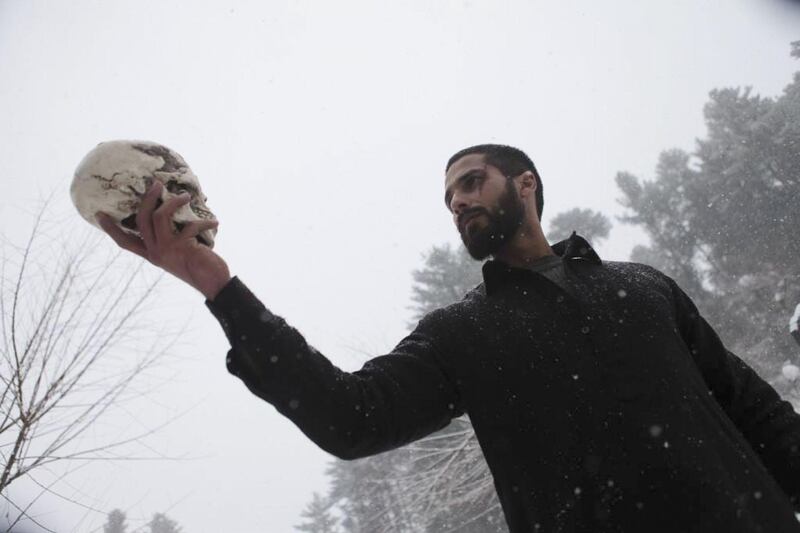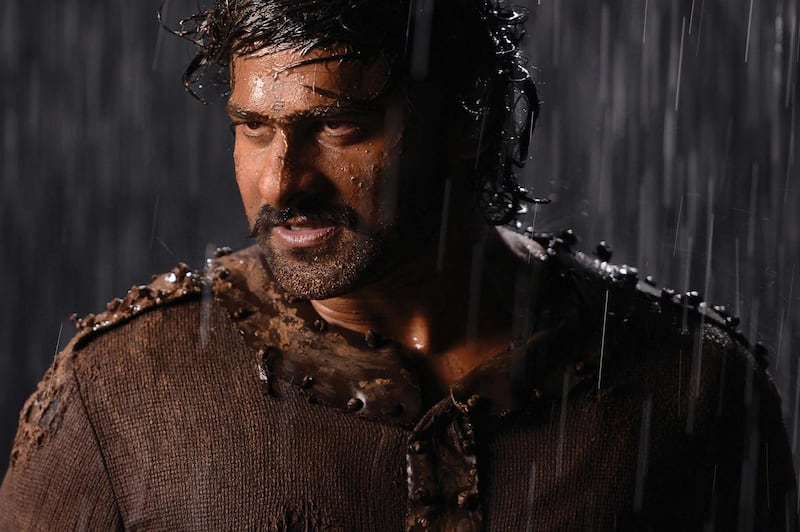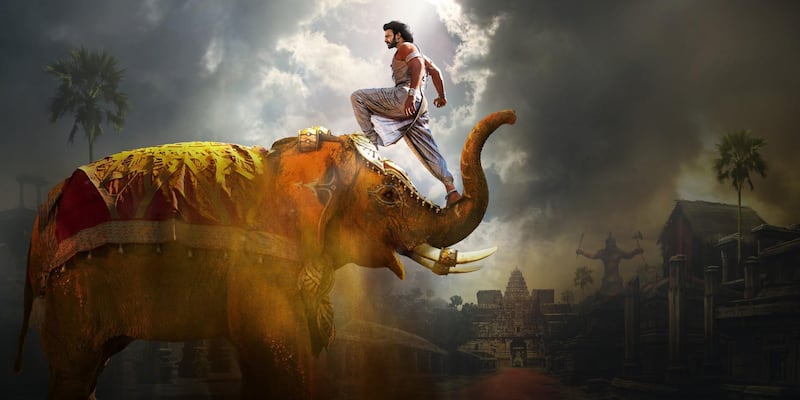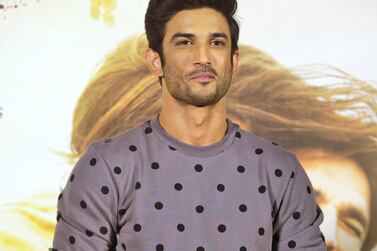How do you distil decades of filmmaking, during which hundreds of movies have been made every year, into a list of 10? You cannot. Anyone who can promise you a definitive Bollywood must-watch list that is only 10 points long, is lying. Ten pages would be more like it. The best any writer can do is sieve through and pluck out the ones that left a mark, for one reason or another. So here is my list of films for someone who’s new to the genre. They will make you laugh, cringe, cry – and ultimately leave you asking for more.
1. 'Sholay' (1975)
If Bollywood had to crown one cult classic that has had more cross-generational cultural impact than any other, it would be this Amitabh Bachchan, Dharmendra and Amjad Khan-starrer. Loosely inspired by Akira Kurosawa's 1954 classic Seven Samurai, Sholay interweaves revenge with raucousness, bromance with star-crossed romance, rural India's feudal undertones with the barely suppressed rage of the helpless. It has got all the things that make Bollywood so deliciously over the top.
Story in a nutshell: A retired policeman, Thakur, contracts Jai and Veeru, a pair of small-time thieves, to nab the dreaded dacoit Gabbar – who had ruthlessly killed his family and hacked off Thakur's arms – so he can have revenge. Along the way, they also manage to find love and save a village.
2. 'Masoom' (1983)
This is 1998's Elizabeth director Shekhar Kapur's debut. Headlined by revered actors such as Naseeruddin Shah and Shabana Azmi, along with Supriya Pathak in a bit role, this Hindi adaptation of Erich Segal's tearjerker novel Man, Woman and Child is the story of the ultimate human cost of infidelity, which almost rips apart this happy family.
Story in a nutshell: Indu and DK have a blissfully happy marriage, with two daughters who they dote on. But DK's past indiscretion suddenly comes back to haunt him in the form of a son he did not know he had fathered. The film revolves around Indu's turmoil because she cannot help but be cold to the motherless and hurting young boy for the marital crimes committed by her husband.
3. 'Khal Nayak' (1993)
Khal Nayak was garish, hammy and unbelievable even in the 1990s, so I can only describe it as a so-bad-that-it-is-good film now. Yet it deserves a spot in this list, because, with it, Hindi cinema turned an important corner. Khal Nayak gave rise to the anti-hero, a sharp departure from the cinema of the 1980s, when the good guys were impossibly good, and bad guys irredeemably bad. Sanjay Dutt's Ballu, or the titular "khal nayak" (which translates to 'the villain') was murderous and corrupt, but also a bleeding-heart and a good son. All of which left India's audience in great confusion about who they were supposed to root for.
Story in a nutshell: Ballu, the wayward son of idealist parents, trades a poverty-ridden life for one filled with dacoity and murder. While on the run, he falls in love with an undercover cop, who realises that beneath the tough exterior lies a kind heart. He finds his way back, but not before leaving a trail of dead bodies and chaos behind.
4. 'Dilwale Dulhania Le Jayenge' (1995)
To know Bollywood, you have to know its biggest superstar, Shah Rukh Khan. And to know Shah Rukh Khan, you must know the film that permanently cemented his reputation as the king of romance. So much so that 25 years on, Dilwale Dulhania Le Jayenge is still running in theatres. It is your go-to film to understand the constant tug-of-war between love and conservative family values within Indian society.
Story in a nutshell: Simran and Raj meet and fall in love while travelling through Europe. But Simran is betrothed to her father's friend's son (who she has never met) in India. Raj follows her there and inserts himself into her fiance's family in the hopes of winning Simran's stern father over, even as her wedding celebrations are under way.
5. 'Dil Chahta Hai' (2001)
Dil Chahta Hai is among those rare Hindi gems that has aged well, and can make a viewer wistful even two decades after its release. It's the film that redefined friendship, love and life as experienced by upwardly mobile, urban India. It's also the movie that made the Mumbai film industry sensible to the fact that characters did not always need to be larger than life.
Story in a nutshell: Akash, a certified commitment-phobe, Sameer, a guileless romantic, and Sid, a brooding painter, are all best friends, despite their starkly different ways of experiencing life. Dil Chahta Hai is the story of how they fall in love despite themselves, fall out with each other, and, ultimately, the messiness of the human condition.
6. 'Lagaan' (2001)
This is the third and the last Indian film to be nominated for an Oscar. Lagaan combines the two things that India most loves to celebrate: cricket and underdogs. Director Ashutosh Gowariker was turned down repeatedly before superstar Aamir Khan decided to act in and produce the film. With a run-time of close to four hours, Lagaan is an exquisite and equal marriage of content and form.
Story in a nutshell: Bhuvan, a young farmer, accepts a challenge by the British officer ruling over his village to a cricket match. If he wins, they will cancel the "lagaan", or tax, on the village for three years. But if he loses, they have to pay triple. Villagers rally behind Bhuvan, as a team of ragtag players is put together and trained in the gentlemen's game.
7. 'Omkara' (2006)
This is possibly the finest example of what Bollywood is capable of creating, if only it allowed itself to dare. Fifteen years on, it is still the kind of film that sends shivers down a movie-lover's spine. Based on Shakespeare's Othello and set in the hinterlands of India, Omkara is a masterpiece that nails the art of adaptation and combines it with a razor-sharp screenplay, raw dialogues and sublime acting.
Story in a nutshell: Omkara, a local politician and criminal, elopes with Dolly on the day of her wedding. Political rivalry makes a subordinate trick Omkara into believing that Dolly is cheating on him with his protege. Blinded by rage and jealousy, Omkara destroys everything he holds dear.
8. 'The Lunchbox' (2013)
If movies were people, The Lunchbox would be the friend who gives the best, most comforting hugs. It's the kind of movie that lingers in the recesses of your brain long after you have watched it and makes you smile at odd moments. It's an extraordinary film about ordinary people most of us are likely surrounded by. It's the kind of movie that you watch with your eyes and ears, because you do not want to miss the many, many melodic and shyly poetic descriptions of all that is mundane. If movies were sounds, The Lunchbox would be a sigh.
Story in a nutshell: Ila and Saajan find themselves in an unlikely friendship, exchanging confidences, after a mix-up involving a lunchbox. Their conversations change the course of both their lives.
9. 'Haider' (2014)
There is so much to love and grieve for this adaptation of Shakespeare's Hamlet, which uses the tragedy of unanswered questions and suspicion that is left behind when family members suddenly disappear in Kashmir as its canvas. Mainstream films have attempted to document the decades-long Kashmir conflict for years, but Haider gives the most honest portrayal to date of the people most affected.
Story in a nutshell: The titular character's doctor father is taken into custody by the Indian Armed Forces for performing an emergency surgery on the leader of a pro-separatist Kashmiri militant group, but then is never heard from again. The search for answers makes Haider increasingly desperate, mad with grief, and, ultimately unhinged.
10. 'Baahubali: The Beginning' (2015) and 'Baahubali 2: The Conclusion' (2017)
Before Baahubali, it was tough to imagine that dubbed (the films are originally in Tamil and Telugu) Hindi films could ever be the highest-grossing in India and also overseas. But both parts of this two-part magnum opus held that record at the time of their release. They might not be the best Indian films you will ever watch, but they are certainly among the most entertaining ones you will encounter.
Story in a nutshell: Shiva, a young man with preternatural warrior-like strength, discovers that he is actually the rightful heir to the throne of the ancient kingdom of Mahismati. After learning of the multiple betrayals his father endured, he embarks on a journey to reclaim his birthright.
